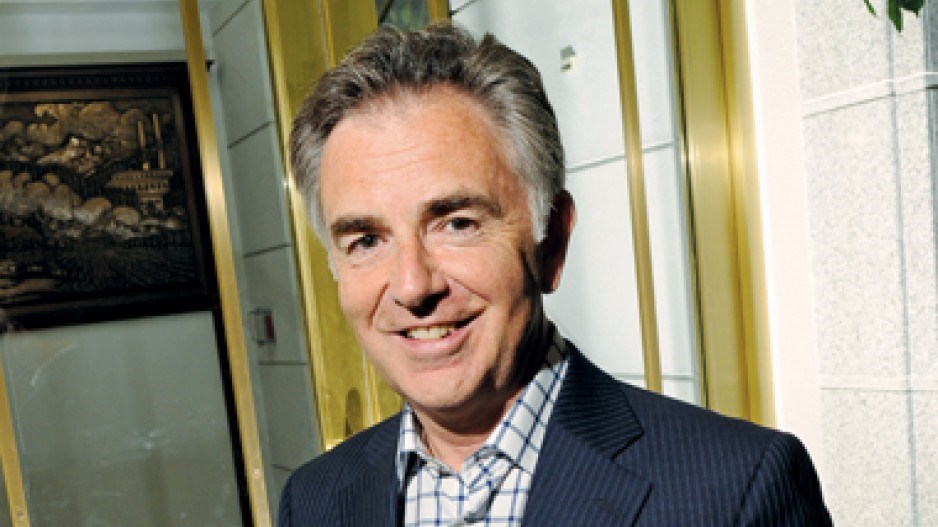Metro Vancouver’s quest for overall sustainability will require a strong economy to undergird it, according to policy and industry officials from the region who at a recent public forum painted that prospect as daunting.
The expense of supporting the sorts of environmental and public programs that Vancouverites have come to expect – and which stoke Vancouver’s international reputation as a green Mecca – won’t thrive without a business base to support it, they said.
The takeaway from the Future of the Region Sustainability Dialogue, arranged by Metro Vancouver and billed as a forum on “shaping regional prosperity and competitiveness,” was that economic growth, so often derided as anathema to sustainability, must form a component of a vision for a sustainable Vancouver.
“It’s not growth at any cost,” said panellist Peter Jeffrey, former vice-president of Canadian Manufacturers and Exporters BC. “It’s certainly growth to be able to afford the standard of living that you or the majority of people want in this province.”
Other participants in the forum were Lorraine Copas, executive director of the Social Planning and Research Council of BC; Bill Tam, CEO of the BC Technology Industry Association; and Lee Malleau, former CEO of the Vancouver Economic Commission who now works for Calgary Economic Development.
Environmental sustainability will remain merely an ideal if the region’s economic sustainability is in doubt, Tam said. While Vancouver and B.C. excel as startup laboratories, he said, the region needs to maintain investment in existing small and medium tech companies if they are to develop the “critical mass” they need to become larger, more consistent employers.
With fewer than 4% of Metro Vancouver’s tech companies employing more than 50 people, Tam said, “we need a culture of support.”
If such firms do aim to expand, there’s still the matter of finding workers willing to stake their claim in one of the world’s most expensive cities – the greatest impediment to attracting talented workers, the panellists agreed.
After a rare decline in 2012, the composite benchmark for Greater Vancouver residential properties still sat at $596,900 in November, according to the Real Estate Board of Greater Vancouver. Meanwhile, according to Statistics Canada, the 2010 median household income in Vancouver was just $67,090, or about one-ninth of what a home costs.
“Affordability is at the top of the list,” Malleau said, adding that one solution the economic commission has explored is to court the sort of workers (video game engineers, for instance) who might view buying a home as a relatively low priority.
One danger for Metro Vancouver is not being able to support vibrant companies or sustainability measures because its wealth is tied up in real estate, Jeffrey said. He compared the city’s identity as an unaffordable destination against those of London and Brussels, which as a financial capital and the home of the European Union, respectively, offer little pretence of affordability for working-class people.
“This is where people want to have a house,” Jeffrey said. “So you’re attracting people who don’t have to work here. They are either investing here or retiring here. So you could make a conscious decision that Vancouver is going to be a retirement community, because those are the people who can afford to live here.”
The consulting firm Mercer ranked Vancouver fifth in its most recent annual quality-of-living survey of world cities. The next-highest North American city was Ottawa, at 14th.
But it’s also an ageing population, no friend to economic growth. Between 2001 and the 2011 Census, the only age groups that saw net percentage growth were ages 45 and above, with the greatest leap in the 55-to-64 cohort as the baby boomers grow older and the price of starting new families continues to rise.
Social well-being will also contribute to the economic and environmental sustainability of the region, Copas said. She described the disparity between those who already own property in Metro Vancouver and those who aspire to buy one day as stark.
“You can start to see that we almost live in two different regions, in certain ways,” she said. “And we have to really find a way to make that affordability equation work.”
Malleau said the direction of the region’s growth, rather than simply the scale, will help determine sustainability. As an example of quality growth she cited a project with Vancouver-based Alterrus to build a vertical urban garden on the top level of a downtown parking garage. “National security is often dependent on having your own food sources,” Malleau said.
Tam also suggested one of Vancouver’s economic and aesthetic strengths could also serve to work against it, saying the beauty and play-hard culture of Vancouver ultimately undercuts the city’s dedication to growing the economy. “When you’ve got a great life,” he said, “why work more?”




